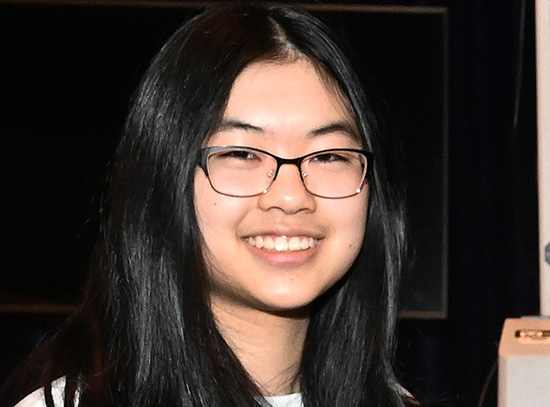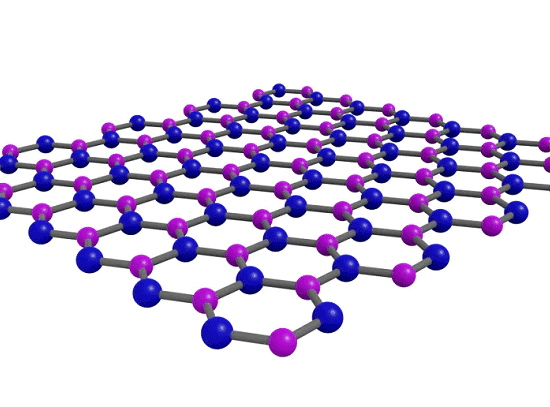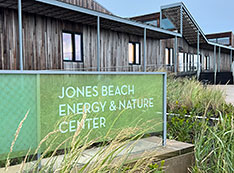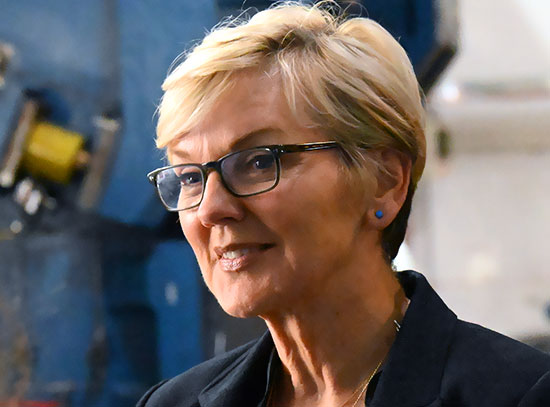INCREASE Workshop Connects Minority Scientists with DOE Facilities, Collaborators
The eighth workshop held at Brookhaven introduced faculty members to the high-tech user facilities available for research into materials science, energy technologies, structural biology, and more
September 2, 2014
The Interdisciplinary Consortium for Research and Educational Access in Science and Engineering (INCREASE) held its eighth workshop at the U.S. Department of Energy’s Brookhaven National Laboratory in July. The goal was to introduce faculty from institutions serving populations historically underrepresented in the sciences and engineering to the powerful research facilities available for use at Brookhaven Lab.
The consortium has been coming to Brookhaven since it began in 2007 to increase the number of scientists and engineers from Historically Black Colleges and Universities and other Minority-Serving Institutions (MSIs) who conduct their research at DOE and other nationally funded user facilities. At Brookhaven, scientists familiarized workshop participants with two DOE Office of Science user facilities at the Lab: the National Synchrotron Light Source (NSLS), which provides high-intensity beams of infrared, ultraviolet, and x-ray light for studies in many areas of science, and the Center for Functional Nanomaterials (CFN), which explores the unique properties of materials and processes at the nanoscale, in large part to advance research that addresses the nation's energy challenges.
“Our goal is to get faculty involved in these user facilities,” INCREASE President Sekazi Mtingwa said, “and the workshop is our biggest mechanism for making this happen. We also try to get faculty to collaborate. Many faculty are not aware of the facilities they can use at Brookhaven and other DOE labs. Then they come here and say, ‘Hey, this could really help my research.’”
Before the workshop, INCREASE participants submitted one-page white papers describing their research focus and future interests. Then, at the workshop, Brookhaven scientists showed participants how the capabilities of NSLS and/or CFN could further those specific research areas.
The Brookhaven scientists attending weren’t just anyone, but hand selected scientists who could be potential collaborators, said INCREASE Chair Eric Sheppard, who is dean of the School of Engineering and Technology at Hampton University in Virginia.
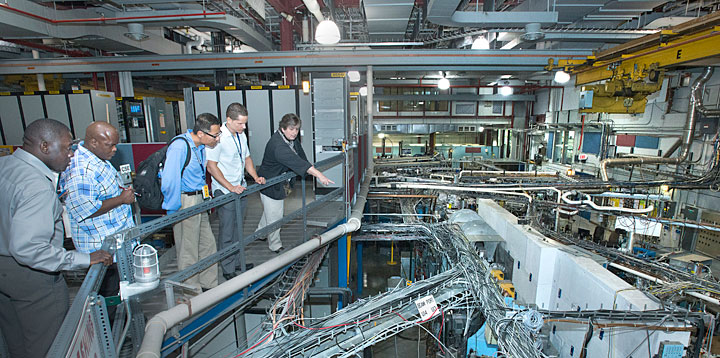 enlarge
enlarge
Participants in the INCREASE Workshop held at Brookhaven last month toured two of the Lab's user facilities ─ the Center for Functional Nanomaterials (CFN) and the National Synchrotron Light Source (NSLS). During their tour the participants, who are primarily faculty members from institutions serving populations historically underrepresented in science and engineering, received an overview from Lab scientists on the type of research being conducted at the Lab and how the capabilities of user facilities like NSLS and/or CFN could enhance the research they are doing at their university or home institution.
"INCREASE has been very successful in exposing professors at Minority Serving Institutions (MSIs) to DOE user facilities at BNL and other national laboratories,” said Noel Blackburn, Brookhaven’s Office of Educational Programs manager of University Relations and DOE Internship Programs, who has been heavily involved in INCREASE since its inception. “This INCREASE model is an excellent mechanism in attracting minority scientists to our user facilities thereby strengthening the relationship between MSIs and DOE."
This year, INCREASE was able to bring six workshop participants to the Lab, directly funded for the first time through a grant from the Broadening Participation in Engineering Program at the National Science Foundation. Since they were here at the same time, participants in Brookhaven’s DOE-funded Visiting Faculty Program, which seeks to increase the competitiveness of faculty members and students from groups historically underrepresented in the research community, also attended the workshop.
“It was a really successful meeting, and we are very appreciative of the way Brookhaven continues to embrace INCREASE and its goals,” Sheppard said. He said the group will keep expanding to other DOE labs and other facilities, “But I think Brookhaven will always be home base.”
2014-5136 | INT/EXT | Newsroom





